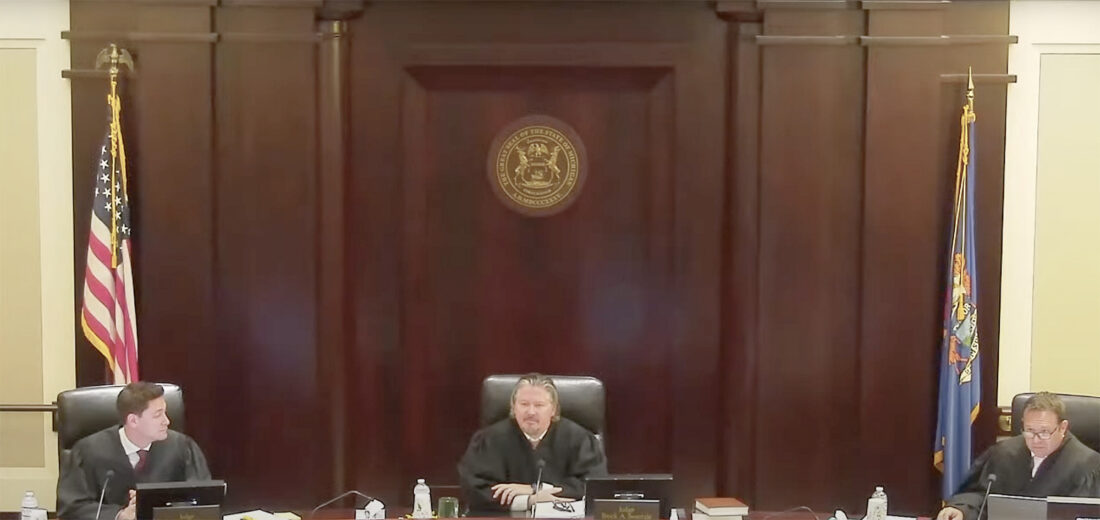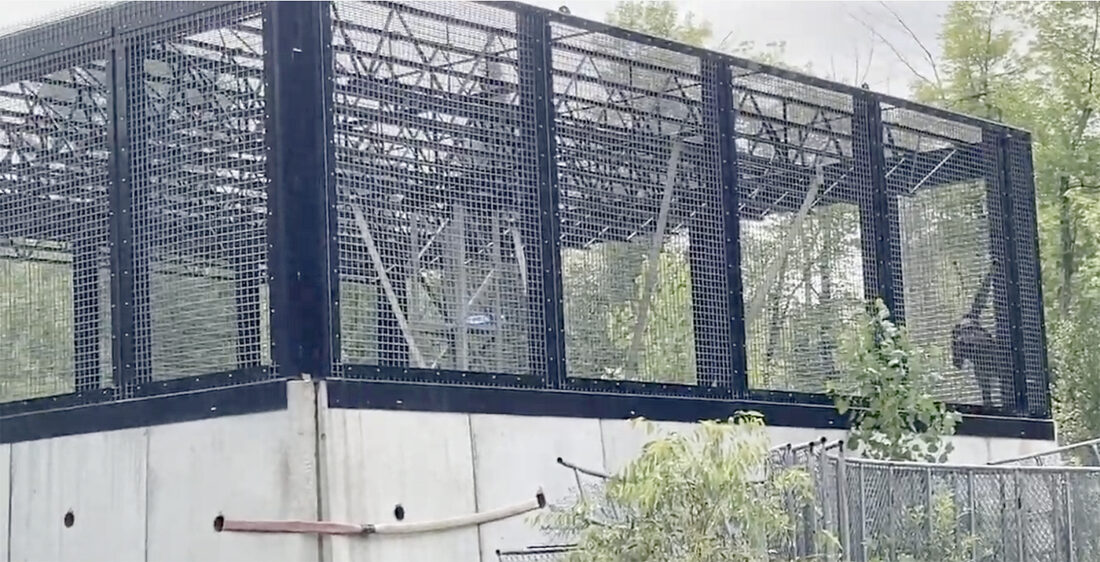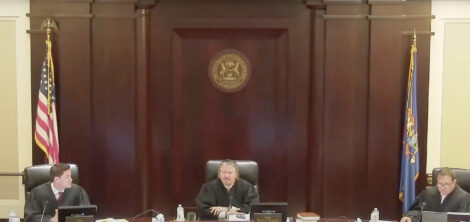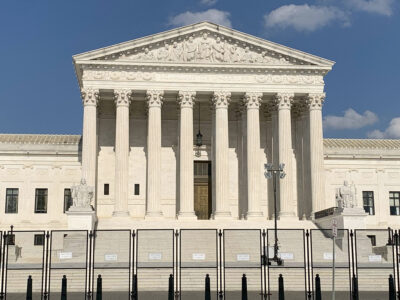Court: Chimps don’t have human rights, must stay in UP zoo
- After a hearing last week, Michigan Court of Appeals Judges Matthew Ackerman, Brock Swartzle and Christopher Trebilcock said chimpanzees should not be considered persons. (Courtesy of the Michigan Court of Appeals/YouTube)
- A screenshot of a video supplied by the Nonhuman Rights Project shows the chimpanzee enclosure at the DeYoung Family Zoo in Wallace. (Courtesy Nonhuman Rights Project)

After a hearing last week, Michigan Court of Appeals Judges Matthew Ackerman, Brock Swartzle and Christopher Trebilcock said chimpanzees should not be considered persons. (Courtesy of the Michigan Court of Appeals/YouTube)
(This story was originally published by Bridge Michigan, a nonprofit and nonpartisan news organization. Visit the newsroom online: bridgemi.com.)
Chimpanzees in Michigan are not considered “persons” with human rights, according to the state’s Court of Appeals.
That means the owners of the DeYoung Family Zoo in the Upper Peninsula will not need to defend the confinement of seven chimpanzees.
The decision Friday by Judges Matthew Ackerman, Brock Swartzle and Christopher Trebilcock came after a lawyer for the Nonhuman Rights Project argued on Oct. 14 that a court should decide whether chimpanzees are entitled to some of the same rights to liberty as humans.
In its decision, the court said chimpanzees are animals, which previous courts have said should be treated as property.

A screenshot of a video supplied by the Nonhuman Rights Project shows the chimpanzee enclosure at the DeYoung Family Zoo in Wallace. (Courtesy Nonhuman Rights Project)
“No exception exists for ‘intelligent’ animals, which in any event has no natural stopping point,” the appellate court’s decision reads.
The Michigan Supreme Court would have to decide whether the state should treat certain animals as persons, the judges wrote.
The Nonhuman Rights Project intends to appeal to the Supreme Court.
The zoo could not be reached for comment.
In 2023, the Nonhuman Rights Project filed a complaint in the 41st Circuit Court in Menominee County saying the chimpanzees at the DeYoung Family Zoo in Wallace should be considered autonomous beings — or persons — whose confinement must be justified by the zoo. They wanted to see the chimpanzees released to a sanctuary.
The rights group filed declarations from experts such as famed primatologist Jane Goodall, who was still alive at the time, saying chimpanzees are autonomous beings with complex cognitive abilities and social networks.
Circuit Judge Mary B. Barglind dismissed the complaint, saying chimpanzees aren’t human. The Nonhuman Rights Project appealed.
Nonhuman Rights Project attorney Jake Davis was initially granted 15 minutes last week for the hearing before the Court of Appeals, but the judges ultimately engaged him for close to 25 minutes.
Swartzle questioned whether a being’s ability to act autonomously should be enough to guarantee its right to liberty. He said humans can conceivably be a part of the “social contract” in which they give up certain liberties in exchange for rights.
“If we had five, I don’t know, elephants or chimps in this courtroom, I don’t know that they’d all be sitting down as nicely as everyone else in this room,” he said.
Swartzle also asked where the court would draw the line if chimpanzees were considered persons.
“How extraordinary are you willing to go? Elephants, dolphins, chimpanzees, dogs, cats?” he asked.
Davis, the lawyer, suggested the question be answered on a case-by-case or species-by-species basis.
Davis expressed disappointment in the decision.
“Honestly, the decision … read to me like they did not consider anything said at oral argument,” Davis said. “Their position — taken to its logical conclusion — would mean children and the disabled cannot have legal rights.”
Davis said social contract theory, on which he felt the judges primarily based their decision, has “enabled white society to subjugate other humans.”






